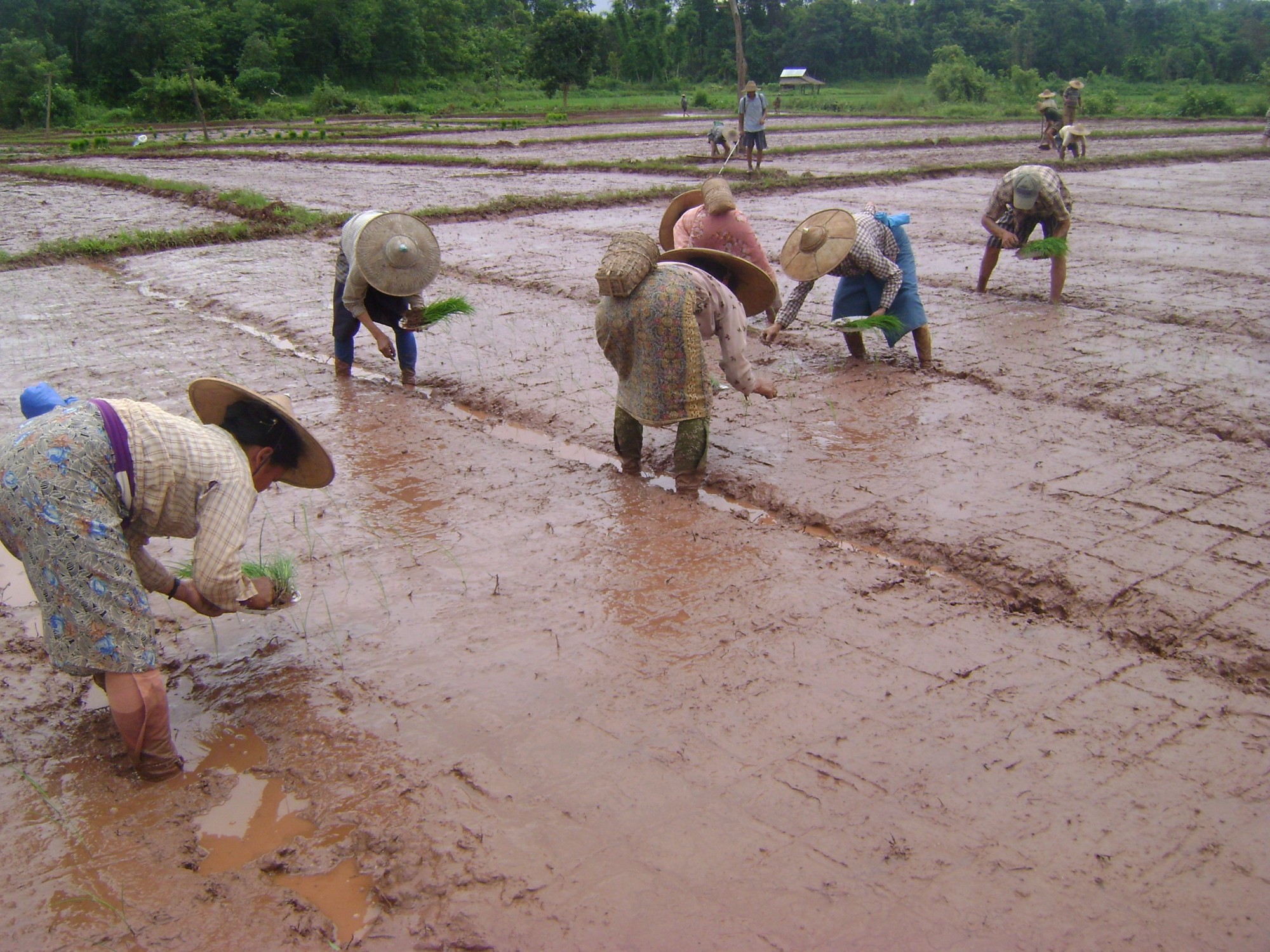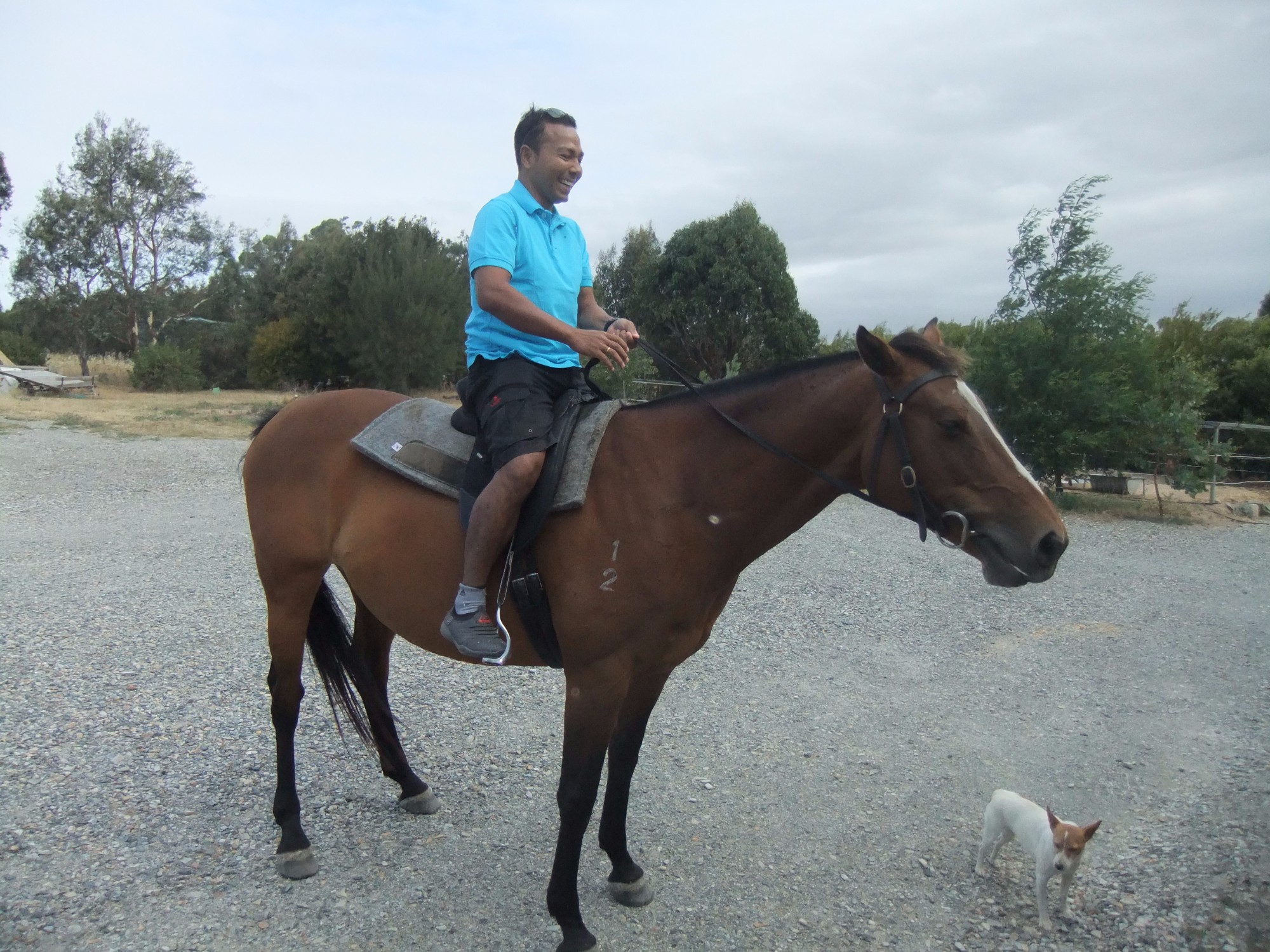10 minutes with Myo Thura, coordinator of ACIAR’s Myanmar Program
Jenny Hanks has a chat with Myo Thura in rainy Yangon while we wait for the power to come back on…
Tell us a little about yourself?
I grew up in Ye, Mon State which is in the southern part of Myanmar, close to the border with Thailand. My grandparents and parents were farmers there and I had fun visiting their farm during school holidays where they grew lots of different fruit (durian, rambutan, mangosteen). This was the reason why I went to study a bachelor degree at Yezin Agriculture University from 1994-1999. After that I worked for the Ministry of Agriculture, Livestock and Irrigation for 6 years. Then I left the ministry and worked for the United Nations Development Programme and a couple of non-government organisations, such as Welt Hunger Hilfe and Care Myanmar. After this I joined the Australian Centre for International Agricultural Research (ACIAR) where I have worked as the program coordinator for ACIAR’s Myanmar Program since 2012.
What are the biggest challenges facing agricultural production in Myanmar?
I think the biggest challenge is that we have no exact data; this makes it very difficult to plan for the future and ways to improve production. Another challenge is the limitation of capacity and facilities of extension services. A third challenge is that often government and private companies work independently in their own ways without collaboration. Generally, they only interact when necessary for the company to be registered. Therefore public private partnerships could be improved. Strengthening these kinds of linkages between stakeholders is key to improving agricultural production.
What makes ACIAR projects or other international development projects successful?
Whether a project helps to improve the livelihoods of the farmers is the most important way to determine if a project has been successful. Good collaboration between government and non-government stakeholders is needed for long term impacts. Using participatory approaches by working together with farmers is the best way for learning, techniques such as field days and demonstrations are very useful to do this.

Picture 1. Farmers participating in a system of rice intensification (SRI) demonstration plot in Shan State. This is a cultivation method which is beneficial for small holder farmers.
What is the most useful training/support Australian researchers can provide to young Myanmar scientists working on ACIAR projects?
I like the Australian researchers; they work together with the young researchers from Myanmar. They provide practical experiences and the chance for hands on learning which is a great opportunity for young researchers in Myanmar. Working and learning together on all the activities of project implementation such as planning, monitoring and evaluation, and reporting helps young researcher gain skills in these areas. Coaching young researchers and continued contact by email helps to continue the learning from each other. If a young Myanmar researcher has a question they can ask easily by email and can plan their research very well. I have no doubt that opportunities for postgraduate study in Australia, such as through the John Allwright Fellowships, provide a lot of benefit to those Myanmar scientists who do this. However, it is not only a benefit for themselves but also for the Myanmar agricultural research workforce.
What are the most important skills an Australian researcher should develop to successfully conduct agricultural research in Myanmar?
They should be patient and take time to develop relationships with research partners as Myanmar people are often a bit shy. Language can be a barrier and working in a group can be a new experience or challenging for Myanmar researchers which should be taken into consideration when developing projects. Myanmar people are gentle and not demanding, therefore Australian researchers need to be prepared to follow up with people, activities and partners.
What have you enjoyed most about working with Australians?
We have become like family members; they are very friendly and very open.
Did you have to adapt/learn new skills when you started working with Australians?
I had to improve my English and sometimes my critical thinking so that activities and events would go smoothly. Previously most of my experience was working in the field and now I am working in the office so I had to learn about financial management, and logistical arrangements.
Do you have a favourite experience about visiting Australia?
It was my first trip to Australia and one of my Australian colleagues invited me to visit her farm. It was great to see an Australian farm; we collected chicken eggs, picked strawberries, and went horse riding. What I mean by horse riding is sitting on the horse and taking pictures whilst the horse was stationary! It was a remarkable and memorable experience.

Picture 2: Horse riding at the farm during my very first visit to Aussie


